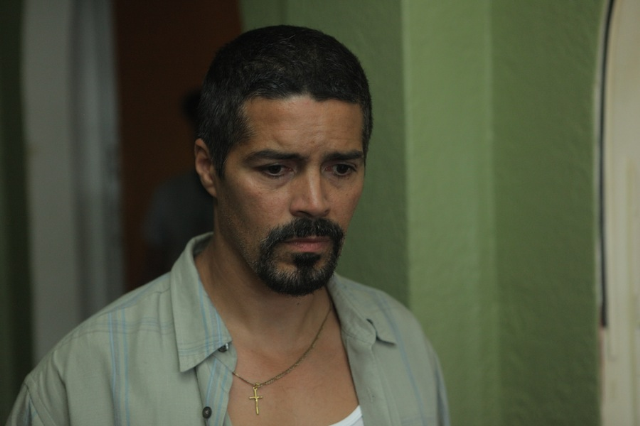|
Reviews of Recent Independent, Foreign, & Documentary Films in Theaters and DVD/Home Video

GUN HILL ROAD Most filmmakers aim for a dash of verisimilitude when setting a film in a scene-specific locale and shooting on that very location, but Gun Hill Road is an example of a movie that is saved by its setting. By firmly establishing the backdrop of a rough, multi-racial Bronx neighborhood teeming with cultural division, first-time writer/director Rashaad Ernesto Green is able to validate his screenplay’s more histrionic qualities. Many of the melodramatic and clichéd actions taken by his main character, who is ill-equipped to deal with shifting family dynamics and social mores, make more sense considering this particular street-hardened landscape. After a three-year stint in prison, Enrique (Esai Morales) finds his wife Angela (Judy Reyes) and son Michael (Harmony Santana) are not quite willing or able to fully accept his return to their household. Both keep a steady emotional distance, and he soon learns that the former is having an affair while the latter is a pre-op transsexual slowly transitioning to living as a woman. Enrique responds by reverting back to his street-tough ways, despite the fact that he’s under the watchful eye of a wary parole officer (Isiah Whitlock Jr.) and one minor infraction could land him back in the slammer. His numerous violent outbursts and black-and-white pronouncements of masculinity begin to feel trite and tired after a while, but they are understandable in the context of Enrique’s narrowly preconceived notions of manhood. If
nothing else, though, Gun Hill Road is notable for the debut
performance of Santana, an openly transgendered actress who has only
publicly identified as female for the past year. Thus, she has a
profound sense of empathy for her character, and this uncommon depth and
nuance is reflected in the script as well. When Michael, in full drag
regalia, confesses his transgender identity to a man he meets at a club,
we almost expect the scene to end in another escalation of violence.
Instead, something of a relationship develops, albeit a dysfunctional
and abusive one, as both parties struggle to come to terms with the
ambiguities of sexuality and gender. These moments bristle with an
authenticity not always found elsewhere in the film.
Brian Theobald
|

